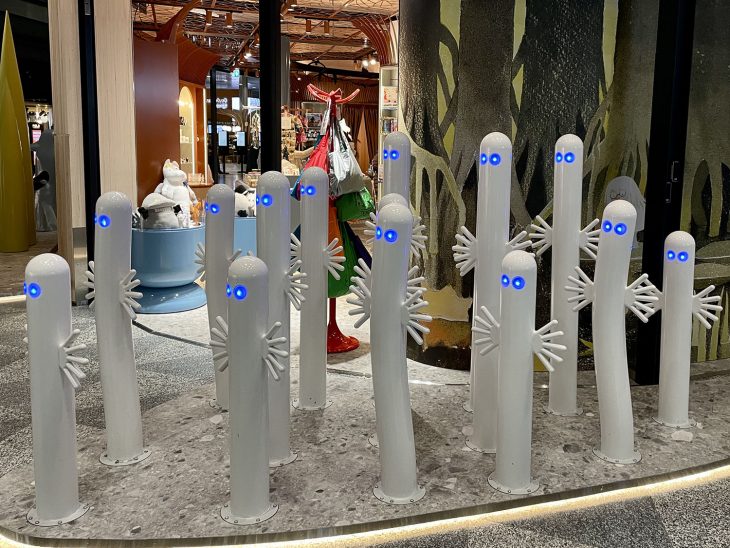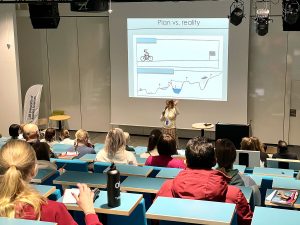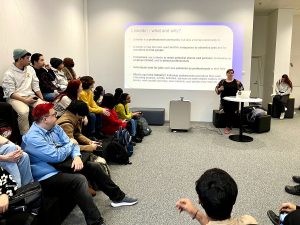
There is no “I” in Team – but there are individuals
Vol 26, Issue 17, 16 February 2024
Many companies these days have implemented team-based working in their organisations. Some have tried and failed, some have been successful, some don’t even know where to start. For some organisations, team-based orientation and tasks, come naturally, especially where the input from each individual team member contributes and supports the team goals. However, there are also occasions where some individuals have their own objectives and goals that are not necessarily aligned with the team – this can of course have dramatic consequences for team dynamics and of reaching the team goals.

For teams to be successful, there needs to be individuals who bring their own perspective, knowledge and expertise, fulfilling the various roles that make up the whole team. Everyone has their part to play, and each team member benefits from others through shared knowledge and ideas. When everyone is able to contribute and bring their own perspective to the problem, creativity and new ideas can help push progress and achieve the team goal. Even though team members are individuals, working within a team, their own strengths are emphasised and any weaknesses are supported by the team. In a well-working team, everyone eventually pulls together for the common goal. Managers who do not acknowledge this have seen the results where goals are not reached because the team has not worked well together – management usually attribute this to a poor performing team whereas it should be attributed to a poor performing manager that has not understood team roles or dynamics, or that the task is not suitable for teamwork.
Another factor that is often overlooked is that if you have a team, then each person has their own strengths and weaknesses, that as mentioned above, are supported by the team. However, if you expect that a team can function through individuals working separately and reporting back to members just on their own actions, but not as part of actual teamwork, then this is generally misguided. Sure, individuals can go outside the team, perform certain functions, but then must involve the other members to receive feedback and input – only then can new ideas be raised.

Imagine members of a team that all have their own specific roles, but the team goal is a joint one. Now imagine that those members all attend separate meetings individually but where issues that can affect the whole team and its goals are discussed. Members should of course report back to the rest of the team to share the information, but where this can fall apart is the lost information that has fallen through the gaps, no different opinions or ideas were put forward or discussed at those separate meetings, and it is difficult to share the feelings without being motivated by personal feelings. How were things presented, what did people think, what was the general feeling? These are things that have more value from shared experiences as the individuals will have shared emotions.
I am not saying that every team member needs to be present at every meeting outside the team, but it is often necessary for more than one member to be there when, for example, attending larger meetings that will be related to the team goals but not necessarily every individual member. In this way, individual team members can support each other when representing the team and putting forward ideas to others outside the team. Afterwards, the sharing of the information with the rest of the team can be much richer and more valuable. At any business-related meeting you attend, and other non-business meetings for that matter, there is always more to the discussions that what is on the agenda, or even what has been said. Underlying factors, personal relationships, and what is NOT said can be just as important, and these are often easy to miss, especially when you are on your own. Tacit knowledge is extremely important in these situations.

Any organisation relying on work to be carried out in teams, needs to remember that teams have to work efficiently and effectively together. Giving individual tasks must be related to achieving team goals and development. There cannot be any competition within a team if you want to see a team-based result, otherwise individuals will push their own agendas and break the team dynamics. Allow team members to work together and where necessary, share resources. Do not force individual members into choices that can affect the team as a whole, or the whole supporting structure can collapse. Allow nurturing and sharing so that the team can grow together and you will have a formidable team, with excellent results, and who knows what they can accomplish.
- First impressions last – dress to impress for an interview - 15th November 2024
- If we had true unity, could Europe be run like a Business? - 27th September 2024
- BIP – Rijeka, Croatia - 13th September 2024
